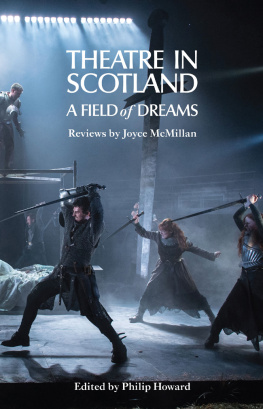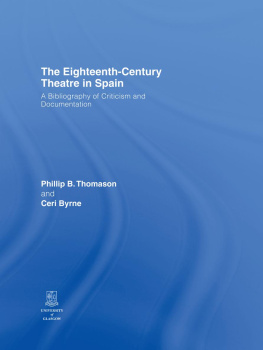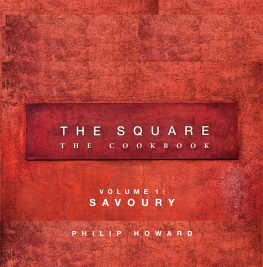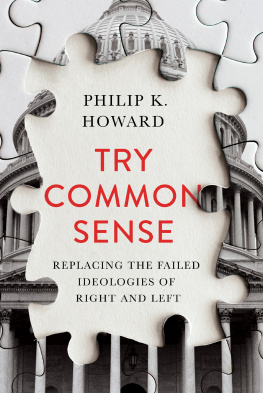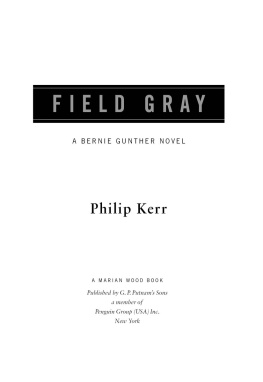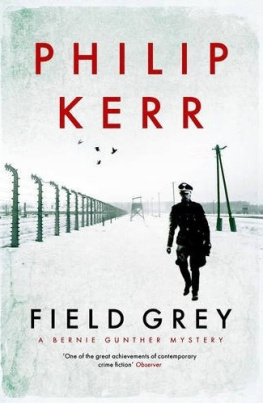Howard Philip - Theatre in Scotland: a field of dreams
Here you can read online Howard Philip - Theatre in Scotland: a field of dreams full text of the book (entire story) in english for free. Download pdf and epub, get meaning, cover and reviews about this ebook. City: Scotland, year: 2016, publisher: Nick Hern Books, genre: Romance novel. Description of the work, (preface) as well as reviews are available. Best literature library LitArk.com created for fans of good reading and offers a wide selection of genres:
Romance novel
Science fiction
Adventure
Detective
Science
History
Home and family
Prose
Art
Politics
Computer
Non-fiction
Religion
Business
Children
Humor
Choose a favorite category and find really read worthwhile books. Enjoy immersion in the world of imagination, feel the emotions of the characters or learn something new for yourself, make an fascinating discovery.
- Book:Theatre in Scotland: a field of dreams
- Author:
- Publisher:Nick Hern Books
- Genre:
- Year:2016
- City:Scotland
- Rating:5 / 5
- Favourites:Add to favourites
- Your mark:
- 100
- 1
- 2
- 3
- 4
- 5
Theatre in Scotland: a field of dreams: summary, description and annotation
We offer to read an annotation, description, summary or preface (depends on what the author of the book "Theatre in Scotland: a field of dreams" wrote himself). If you haven't found the necessary information about the book — write in the comments, we will try to find it.
Theatre in Scotland: a field of dreams — read online for free the complete book (whole text) full work
Below is the text of the book, divided by pages. System saving the place of the last page read, allows you to conveniently read the book "Theatre in Scotland: a field of dreams" online for free, without having to search again every time where you left off. Put a bookmark, and you can go to the page where you finished reading at any time.
Font size:
Interval:
Bookmark:


Reviews by Joyce McMillan
Edited by Philip Howard

NICK HERN BOOKS
London
www.nickhernbooks.co.uk
Contents

I first heard the name Joyce McMillan during my early forays to the Edinburgh Festival as an aspiring theatremaker.
Hers was the review we all craved. Hers was the recommendation we took seriously. Hers was the opinion that mattered.
As I got to know Joyce in person and read ever more of her work over the years, I understood why.
Joyce has an unrivalled passion and hunger for theatre to be surprised by it, challenged by it, moved by it. Her prose when describing something which has done just this is inspiring and affecting.
Her tireless ability to seek out great plays and to place them within the context of her extensive theatrical and political knowledge is extraordinary, and her belief that theatre can bring about change has allowed many of us to continue to aspire to excite her.
Vicky Featherstone
Artistic Director
Royal Court Theatre, London
Foreword | Philip Howard |

T his collection of theatre reviews by Joyce McMillan traces her journey from self-taught, passionate contributing writer to the short-lived Sunday Standard (1981-1983), to her current life as the chief theatre critic of The Scotsman. No other critic in Scotland covers as much ground as she does in her working week, or has done for so many years. And so the premise of this book is simple: gather all of the most insightful material from over the past three decades, add new essays by McMillan herself to underscore the narrative and what you have is a history of modern Scottish theatre, reported from the frontline. The volume is not a hit parade. While the vast majority of landmark theatre productions in Scotland have been covered, it was important also to acknowledge McMillans footfall across the whole country and celebrate the truly national portrait that emerges.
McMillans first reviewing jobs were for BBC Radio Scotland in the 1970s, talking about Edinburgh Festival shows for Festival View, presented by Neville Garden and she credits the inspiration of this annual cultural spectacle as a determining factor in her ambition to write about theatre. In 1978 the great Allen Wright at The Scotsman commissionedher to cover a production of The Good Person of Szechwan for him in St Andrews, and she soon became his second-string reviewer. When the Sunday Standard was founded in 1981, McMillan set her sights on becoming their principal theatre critic, and, despite the newspaper lasting only two years, it is here that she begins to find her voice, or, as she puts it, This is where the dialogue with myself really starts. There followed ten distinguished years as the Guardians Scotland theatre critic (1984-1994) and three at Scotland on Sunday (1994-1997), where for the first time she was writing a longer weekly column, essay-style, covering all the weeks theatre openings, and exploiting her skill in detecting wider cultural resonances and thematic links between the work. After a lightning-quick spell as an arts writer for The Herald in 1997, she started in 1998 at The Scotsman, and it is in this current incarnation as a critic and political commentator that she has become defined as a leading thinker and writer about Scotland.
She wasnt born to it. There were visits to the theatre as a child her first memory is of a Kenneth McKellar Christmas show at the Alhambra, Glasgow but she was never an enthusiastic amateur audience member, or certainly not for very long. A half-completed PhD at the University of Edinburgh on the tragedies of Ben Jonson crystallised for her the indivisibility of theatre and politics, and she talks interestingly about her new passion for theatre at that time stemming from her disenchantment with the direction of British politics, i.e. towards the right, and a conviction that theatre is one place where you might find an alternative truth about what it means to be human. And perhaps it is this wide-angle lens on theatre and parallel enquiry as a political writer which explain her tenacity and longevity. Of course, shes not the only theatre writer to apply herself to political writing think of Fintan OToole, for many years political columnist and chief theatre critic of The Irish Times but McMillans career is coinciding with the very period where Scotland is remaking itself more energetically than ever before. The ground is fertile.
It is surely the goal of any critic, certainly in terms of legacy, to contribute in some way to the evolution of the art form itself, Kenneth Tynan in England and America in the 1950s and 60s being the iconic example of this. McMillan has far too long a working life left for it to be possible to make this kind of retrospective analysis, but certain themes do emerge from her critical writing which arguably have tuned with the times, if not influenced them: for example, an obstinate insistence that the director of a classic revival must know very precisely why they are reviving an old play rather than making a new one her sympathy for directors who also have to run monolithic theatre buildings does not extend to them programming plays just because they feature in compendia of the 100 greatest plays. Predictably, as a leading political commentator, she will despise an unthinkingly or lazily apolitical interpretation of a play, reserving her greatest spleen for the Loamshire play (as Tynan did before her), or self-absorbed new writing that makes no attempt to connect with the public sphere. But then in a wonderfully contradictory way she will often surprise us by enthusing about something shamelessly sentimental, entertaining or romantic, as long as its beautifully executed. Most importantly of all, she has, to my knowledge, an almost unblemished record in never having failed to spot a great new play; and, rare among critics, she has the ability to watch an unsuccessful new play and detect whether its the playwright or director at fault. This can make for uncomfortable reading. (Philip Howards Traverse production seems to fall stillborn on to the stage on Grace in America by Antoine Flatharta, Scotland on Sunday, 1 May 1994 sticks in the mind.)
She isnt shy of skewering some sacred cows: the empty heart of the RSCs Les Liaisons Dangereuses (1990); the reactionary flippancy (Travesties, 1987) and bourgeois self-satisfaction (Rough Crossing, 1996) of Tom Stoppard. And occasionally she deploys a devastating ability to take hold of a superficially successful production think Bill Brydens The Big Picnic (1994) or the Brian Cox The Master Builder (1993) and then, like a drone or laser, zero in on its fatal flaw. But McMillan is also bold in finding something to commend even in work of mixed success, and stick her neck out to champion unfashionable work which she suspects her colleagues might dismiss. Perhaps this is because she knows its easier to write a bad review than a good one, intellectually easier to puncture than to validate. And so there are plenty of roses among the barbed wire and an unswerving commitment to shout praise from the rooftops where it is due, and celebrate the art form in all its mad messy glory (
Font size:
Interval:
Bookmark:
Similar books «Theatre in Scotland: a field of dreams»
Look at similar books to Theatre in Scotland: a field of dreams. We have selected literature similar in name and meaning in the hope of providing readers with more options to find new, interesting, not yet read works.
Discussion, reviews of the book Theatre in Scotland: a field of dreams and just readers' own opinions. Leave your comments, write what you think about the work, its meaning or the main characters. Specify what exactly you liked and what you didn't like, and why you think so.

